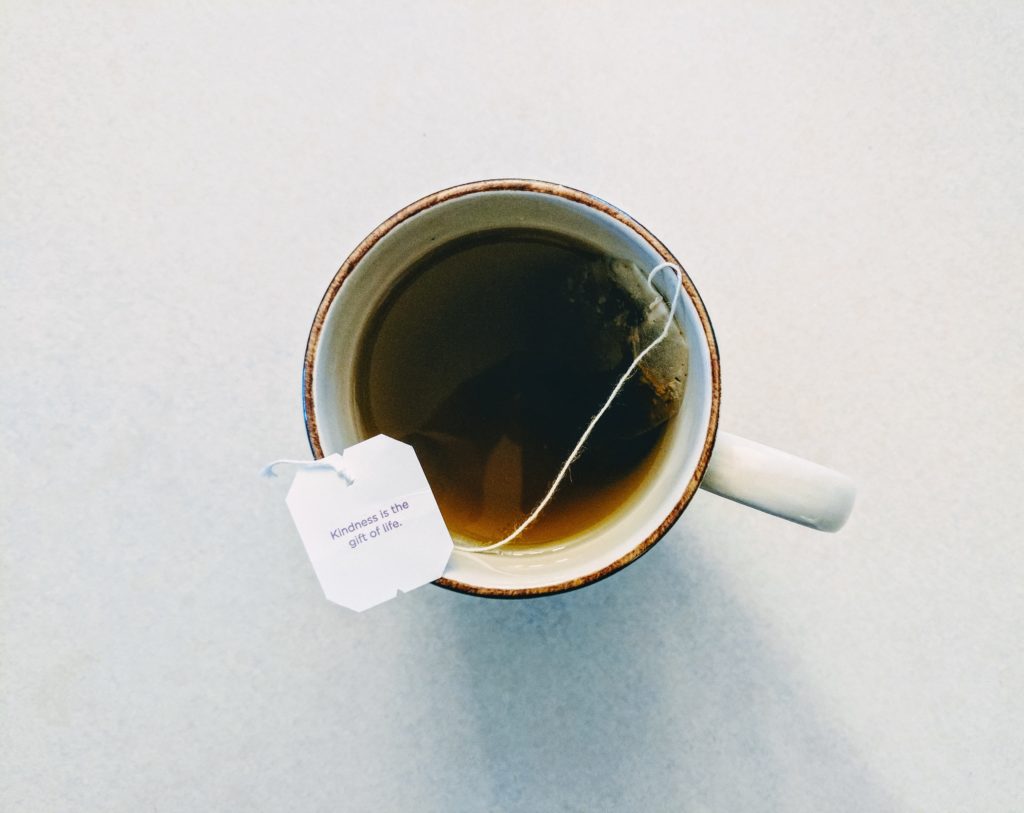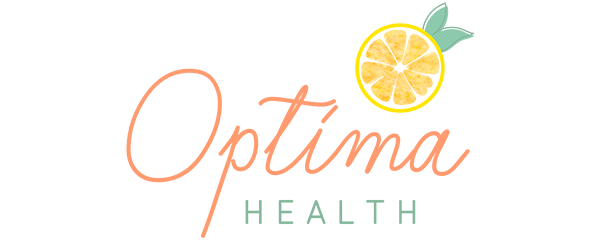Tea. Its such a big part of my day. I often start my day with a Twining’s or a green and end my day with a peppermint. In fact, as I sit here writing this blog there is a teapot full of the most delicious chai rooibos blend next to me. There are so many types and each one has a different benefit. Herbal teas are cheap to make and can be consumed hot or cold. Plus, they can be used to count toward your water intake for the day too – except those containing caffeine! Tune in below for my guide to herbal teas.

TEAS TO HELP AWAKEN
CINNAMON
Cinnamon is a warming spice, making it a perfect tea for the cooler seasons. It exerts antioxidant, anti-inflammatory, antimicrobial, anti-carcinogenic and lipid-lowering benefits. It has been shown to be useful in cardiovascular disease as well as various neurological disorders such as Parkinson’s and Alzheimer’s diseases, as cinnamon contains important phytochemicals which boost the ability of the brain to utilise glucose. Not to mention its a great blood sugar balancer and appears to mimic the effect of insulin through increased glucose uptake in adipocytes (fat cells) and skeletal muscles. One study in particular highlighted the postprandial effects of ingesting cinnamon tea and found that drinking cinnamon tea after a meal resulted in a significantly lower postprandial maximum glucose concentration – in other words, significantly lower blood glucose concentration and better balance. In terms of its anti-microbial effects, the cinnamaldehyde component of the spice is responsible and has been shown to inhibit the growth of Listeria and E.Coli in food products, prolonging their shelf life.
Note however, the Cassia variety of cinnamon contains high levels of coumarins, which can prove to be toxic when ingested in high doses. While further research is required, a daily intake of more than 0.1mg/kg body weight can lead to a conspicuous effect on blood coagulation profile, specifically in those who on drugs such as warfarin. Further, coumarin is a highly hepatotoxic toxin, hence those with liver issues should avoid/check in with their healthcare practitioner before consuming.
ROOIBOS
Rooibos tea comes from the shrub Aspalathus linearis which only grows on the slops of the Cape of Good Hope in South Africa. It has a mild, aromatic flavour and is traditionally red in colour. Rooibos is a great option as it is rich in bioflavonoids such as quercetin and rutin, two compounds that block histamine, a chemical produced by the body in response to allergens. It is a great one to have in the morning when you’re first exposed to any potential allergens and as a general warming wake-me-up. The vast majority of scientific studies in relation to rooibos tea have been done on animals, hence, more human studies need to be done. But, there is no doubt this tea has wonderful antioxidant and anti-allergenic effects!
TEAS TO HELP INFLAMMATION
GINSENG
The pharmacological properties of ginseng tea are mainly attributed to the saponins present within, commonly referred to as ginsenoisdes, which are the major bioactive components of the herbs. Ginseng has been shown to exert both antioxidant and anti-inflammatory properties, particularly in the way of liver conditions. There is also some research that points to ginseng as an effective hormonal modulator, however, further research is required to allow for a more conclusive review.
ROSEHIP
Rosehip tea is sourced from the berry fruits of the dog rose or the wild briar rose, a rose species native to the European nations, northwestern Africa and western Asia. Nutritionally, rosehip is a natural, wholefood source of vitamin C, in fact in some cases it has been said that the vitamin C content in rosehip is higher than that of some citrus fruits! Rosehip is also high in vitamins A, B3, D, E and folate as well as the minerals magnesium, zinc and copper. Rosehip tea contains a particular type of galactolipid which exerts a specific anti-inflammatory benefit. It has further proven to be a powerful antioxidant and is rich in polyphenolic compounds such as proanthocyanins as well as the flavonoids quercetin and and catechin, which also exert anti-allergenic effects. It has traditionally been used to treat a variety of conditions such as diabetes, diarrhoea and bladder infections and it shows clinical benefits in arthritis and inflammatory bowel disease. Lastly, in contrast to the common nonsteroidal anti-inflammatory drugs that we know, rosehip does not have ulcerogenic effects, making it a more ideal choice for those with chronic inflammatory conditions.
NETTLE
Nettle tea is well known to help with allergy-related symptoms such as hives. Specifically, it is the leaves of the nettle plant that contain important flavonoids such as kaempferol and quercetin, which help reduce the amount of histamine produced in the body, and therefore, improve allergic reactions. Nettle tea is well documented in kidney health due it serving as a powerful diuretic. It has been shown to aid in the removal of kidney stones due to its ability to flush out excess uric acid from the blood. It has also been shown to help reduce systolic blood pressure. Nettle tea has powerful anti-inflammatory, analgesic and antioxidant benefits making it useful in cardiovascular and digestive complaints as well as skin conditions such as eczema and acne. In some parts of the world, it is used for skin care, where the antioxidants contained in the leaves can help speed up skin healing and prevent scarring. Traditionally, it has also been used to treat nits as well as dandruff and other scalp irritations. Nettle leaves contain high levels of chlorophyll which have alkalising properties that assist in the removal of harmful toxins from the body, brightening the skin and balancing the internal environment.
HIBISCUS
Hibiscus tea is made from the dried calyces of the hibiscus flower. Hibiscus flowers contain high levels of antioxidants and have also been shown to exert anti-inflammatory benefits especially in cases of inflammation of mucous membranes such as sore throats, gum disease and cystitis.
TEAS TO HELP DIGESTION
GINGER
Ginger tea traditionally comes from the ginger root. It is an acquired taste in some, but can be softened with a little lemon or honey. Ginger is a natural antihistamine, hence ginger tea is a good option for allergy control. It also exerts anti-inflammatory properties which can reduce the holistic effect of seasonal allergies on the body. Ginger tea is also good for nausea of any kind. Ginger tea is also useful in soothing the digestive tract and has also been shown to be effective in reducing arthritic inflammation, swelling and pain as well as improving circulation. Ginger as an anti-carcinogenic is well documented and also has anti-microbial benefits.
LEMONGRASS
Lemongrass tea is sourced from a perennial plant (aka fever grass) which is found in many Asian nations. It has long, thin leaves and has a wonderful scent – like a lemon, but with a tad more sweetness and a tad less tang. Its another tea that aids digestion and is particularly suited to relieving bloating and flatulence. It also exerts anti-bacterial, anti-fungal and inflammatory properties.
PEPPERMINT
Peppermint tea is one of my favourites and is made from an infusion of peppermint leaves. I often have it after a meal to help with digestion. Peppermint tea is perhaps best known for its gastrointestinal related benefits. It exerts anti-spasmodic actions, has a calming effect on the GI system, increases gastric juices, relieves gas and stimulates the gallbladder to secrete more bile, which is used in fat digestion. Peppermint tea acts as a decongestant and also exerts anti-inflammatory effects as well as mild anti-bacterial effects. It has also been said that drinking cool peppermint tea is useful in combatting hot flushes associated with menopause. Peppermint teas have also been shown to have significant antimicrobial, antiviral, antioxidant, anti-tumor and anti-allergenic potential. However, more clinical trials are required to further validate these benefits.
TEAS TO RELIEVE STRESS AND CALM
CHAMOMILE
Chamomile tea is an infusion of dried flowers from sweet chamomile plants with a subtle flavour. It is perhaps most well known for its calming properties. The tea itself exerts a sedative-like effect, making it useful as a sleep aid and in the calming of nerves and anxiety. In fact, it was used as far back as the 1600s to help treat anxiety. Chamomile tea has also been shown to relieve menstrual cramping, muscle spasms and gastrointestinal disorders. Once consumed, chamomile tea has been shown to raise the levels of glycine in the body, a substance that reduces spasms and further acts as a nerve relaxant. Chamomile also acts as a natural anti-histamine and can help boost immunity and reduce the severity of allergic symptoms in some. It has been scientifically shown to exert anti-inflammatory benefits especially when it comes to bacterial infections of the skin, oral cavity, gums and respiratory tract. Finally, it has also been shown to assist in cases of hemorrhoids, rheumatic pain, ulcers and wounds.
Some doctors recommend limiting chamomile during pregnancy due to its ability to induce uterine contractions. Also, chamomile has been shown to have a blood thinning effect, so those already on medication for this, should be wary with their intake.
VERVAIN
Vervain is a herb known by various names such as Simpler’s Joy, Enchanter’s Plant and Herb of the Cross. It is native to the European region and has been utilised for its medicinal purposes by many cultures over thousands of years. For example, the roots of the vervain plant were used as for its diuretic potential by the Aztecs back in the day. Vervain is especially known for its calming properties. Research published in 2016 found that vervain had significant anticonvulsant, anxiolytic and sedative activities, which provides for scientific grounds for its medicinal application in various neurological conditions, such as anxiety, epilepsy and insomnia. Vervain has also been found to contain a natural plant glycoside called verbenalin which has been shown to exert cardioprotective qualities. Lastly, it also exerts antimicrobial and antiviral properties in a dose-dependant manner.
Note: The above information is intended as general guidelines only and are not prescriptive or personalised in any way. If pregnant or nursing or just thinking about changing up your dietary or supplemental routine, it is always best to seek the advice of a qualified healthcare practitioner.
